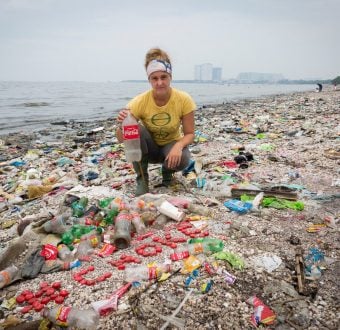Greenpeace researchers visited two scrap yards – one at
Agbogbloshie market, in the capital city Accra, the main center for
e-waste recycling in Ghana, and one in the city of Korforidua.
Samples were taken from open-burning sites at both locations as
well as from a shallow lagoon at the Agbogbloshie.
Samples contained toxic metals including lead in quantities up
to one hundred times above normal levels found in uncontaminated
soil and sediment samples. Other chemicals such as phthalates which
are known to interfere with sexual reproduction, were found in most
of the test samples. One sample also contained a high level of
chlorinated dioxins which are known to contribute to cancer.
“Many of the chemicals released are highly toxic, some may
affect children’s developing reproductive systems, while others can
affect brain development and the nervous system,” said Dr. Kevin
Brigden of Greenpeace International. “In Ghana, China and India,
workers, many of them children, may be exposed to substantial
levels of these hazardous chemicals.”
Containers filled with old and often broken computers, monitors
and TVs – from brands including Philips, Sony, Microsoft, Nokia,
Dell, Canon and Siemens – arrive in Ghana from Europe and the
United States under the false label of “second-hand goods” or are
simply dumped. The majority of the containers’ contents end up in
Ghana’s scrap yards to be crushed and burned by workers, often
children, sometimes using only their bare hands. This method not
only pollutes the environment but also exposes workers to
potentially toxic dust and fumes. This crude “recycling” is done in
search of metal parts, mostly aluminum and copper, which sells for
approximately 2 US Dollars per eleven pounds. Although not a Tech
company, Greenpeace also identified parts on site marked as
property of the U.S. Environmental Protection Agency (EPA).
“Unless companies eliminate all hazardous chemicals from their
electronic products, e-waste dumping will continue to contaminate
the environment and workers – including young children – will be
exposed,” said Casey Harrell, Greenpeace toxics campaigner.
“Electronics companies must not allow their products to end up
poisoning the poor around the world.”
VVPR info: Contact:
Jane Kochersperger, Media Officer, Greenpeace U.S.A., + 1 202 680 3798
A copy of the Greenpeace Research Laboratories Technical Note “Chemical contamination at e-waste recycling and disposal sites in Accra and Korforidua, Ghana” is available from: www.greenpeace.org/poisoningthepoor

